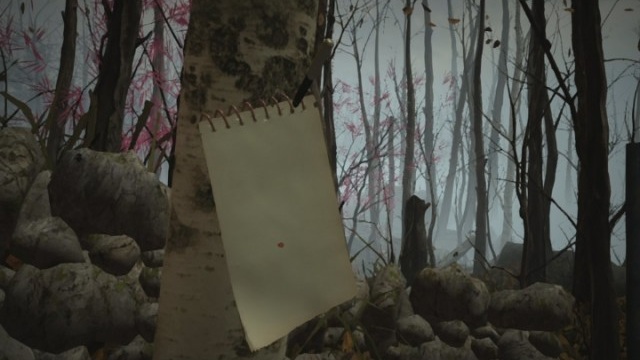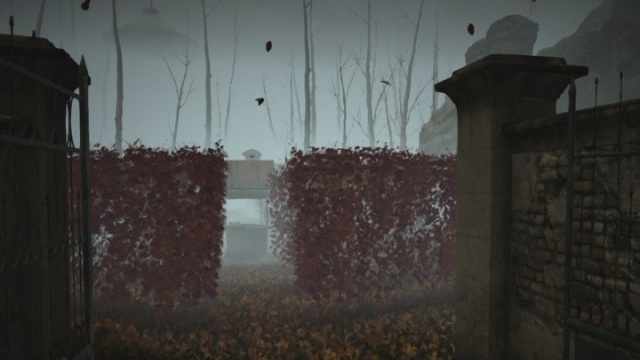Pushing down daisies.
The Datura flower, like mandrake and nightshade, is a plant traditionally used in witchcraft for its hallucinogenic properties. Naturally distributed throughout the United States and Mexico, it has white petals and spiny seeds that both contain tropane alkaloids which in high doses are fatal. In controlled, well-prepared doses, however, they cause a state of delirium where reality and fantasy are blurred and indistinguishable. It's this psychological mind trip that Datura attempts to capture.
Without spoiling too much, the player begins in an ambulance and is then suddenly transported into a hazy forest, in which various events are completed by choosing one of two actions, one "good" and one "bad". These choices ultimately impact the ending, but the main point is to experience and explore the drowsy forest like a waking dream.
The PlayStation Move adds to Datura's intentionally bizarre quality, with the player interacting with objects by extending a detached hand into the world. Sometimes the Move doesn't respond with that much precision, but the variety of Move gestures is abundant and sensical whether it's pulling out a pen, twisting a key to open a lock, turning a wheel, or pouring some goop out of a vase.
The aesthetic of the Datura experience is a light mixture of Heavy Rain's moral trials along with Myst's eerie, otherworldly immersion. In its hypnagogic world, objects frequently seem out of place, like a locked door placed in the middle of a forest path. Everything is somewhere down the rabbit hole and on the verge of becoming a symbol that will make literature majors foam at the mouth. In fact, I anticipate several psychoanalytical essays exploring the Freudian interpretation of its world as an interactive agent upon the player's superego, or in clearer terms, what the heck is going on.

Actually, despite all of the unusual environments and set pieces, Datura isn't difficult to translate nor as complex as it might seem. The various moral choices don't alter the ending in a particularly meaningful way, and the choices themselves don't have much context or significance other than asking whether the player is a do-gooder or a big meanie. It's probably too much to ask a game that lasts two hours to be profound; then again, it's only two hours long. Maybe there's some secret ending that I haven't seen, but after two playthroughs, I'm not keen on playing it a third time to find out. That said, I did play it twice.
Still, Datura should be celebrated for exploring the immersive, psychological boundaries of video games. Even though it doesn't have a high production value and it's short even for a $9.99 game, its core message is that this is an artform that has the power to have players experience something that other artforms can only dream of. There's an incredible amount of untapped potential when it comes to cerebral, out-of-this-world game design, and I can imagine a full retail title based solely off Datura that can radically change how we approach video games. However, until then, Datura is just a sliver of imagination.
-
Wondrously unique
-
Mental trip
-
Good use of Move, though it's sometimes unresponsive
-
Moral choices don't alter ending much
-
Very short











